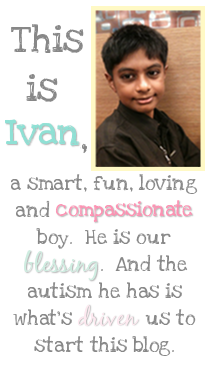When you have a newborn, you will realize that once he gets to recognize you, they will cry when you leave the room. He cries due to the anxiety that you would not return. As he grows older, he will understand that when you leave the room, you are not gone forever. He needs the security and the reassurance that he will not be neglected, maybe it's in our primal instinct.
If you have had the experience of sending your little one to school, you know how difficult it is for both of you. As an early childhood educator, I have witness many children go through the phase of separation anxiety. They scream, yell, kick and cry until they tire themselves eventually, and it starts all over again the next day. All children, take a different amount of time to understand the concept of mummy and daddy leaving them at school, to go off to work. For a little one, it is a concept far too difficult to comprehend.
He wonders why, why do you need to go to work?
Why do you need to leave him at school?
Why can't you take him along?
Why would you take to so long to come back for him?
The most important thing, I realize as a teacher is the importance of reassurance. Reassuring the child that the parents are coming to fetch them soon, helps immensely. Then, if the child is able to understand, state a time that the parent most likely would arrive. This way the child will ease into the separation from family and the anxiety will diminish.
Sometimes, its not the child that has the anxiety but the parent. I have witness, children who have settled down fine, and the mothers, crying outside before they leave. So, if this is so common, why is it a disorder you may ask. Will it only becomes cautionary if it's as follows.
"According to the DSM, separation anxieties become a disorder when the child's anxiety or fear causes anguish and starts to affect social, academic, or for adolescents, work-related situations, and this anxiety lasts at least one month."
What are the Sign & Symptoms to look out for?
- apathy
- aversion to school
- bedtime fears
- clinging to parents
- crying
- depression and sadness
- desire to sleep in parents' bed
- difficulty concentrating
- difficulty falling asleep
- dizziness
- excessive worry
- fear of carpooling
- fear of getting sick on school bus or in school
- fear of meeting new people
- feeling unsafe being alone
- headaches
- hiding, especially behind parent
- nausea
- shadowing parents
- shortness of breath
- sleep disorders such as inability to sleep and nightmares
- stomachaches
- sweating
- tantrums at school
- trembling
- unreasonable fear of harm or death
- unwillingness to interact with anyone other than parents
- wanting to be held
- whining
- withdrawal
Book: Alphabet Kids: From ADD to Zellweger Syndrome by Robbie Woliver























No comments:
Post a Comment